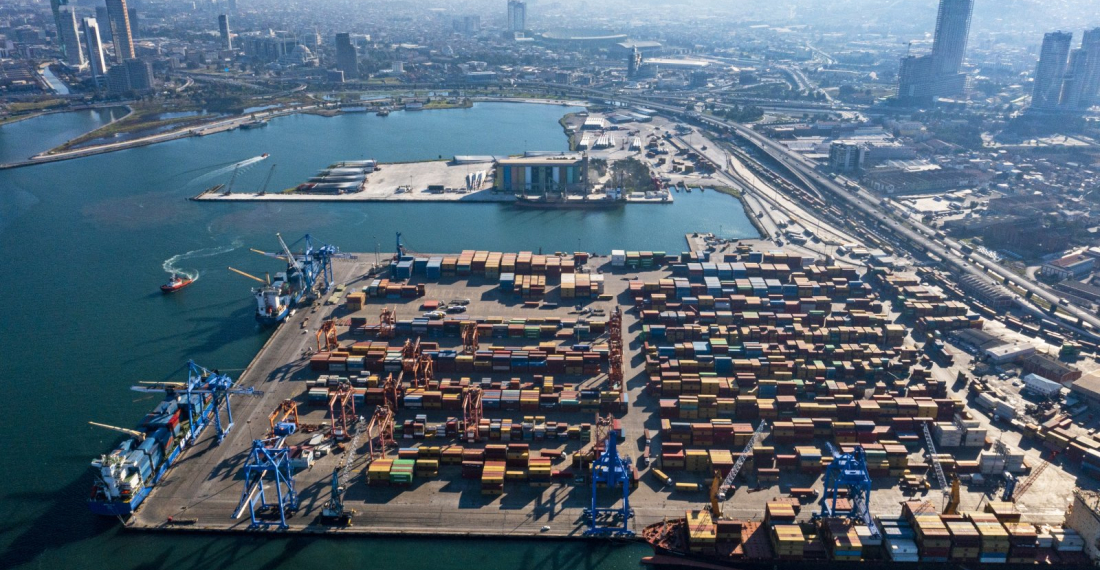Turkey’s exports jumped to an all-time high of nearly $225.4 billion (TL 3.03 trillion) in 2021, President Recep Tayyip Erdogan announced on Monday (3 January), far exceeding goals. The news of increased exports contrasted with a large number of negative stories in the international media, who have highlighted the decline in the value of the lira, as well as spiraling inflation, as examples of a decline in the Turkish economy.
Foreign sales surged by 32.9% year-over-year in 2021, Erdogan told a group of exporters in Istanbul, prompting an upward revision in the export target for 2022.
“We are revising our 2022 (export) target as $250 billion,” the president said, reiterating the eventual goal of turning Turkey into a country registering a current account surplus.
“Thanks to the strong performance in our exports, we had already exceeded the target of the medium-term program for 2021. In this program, we had determined nearly $231 billion in exports for the year ahead. I believe that we will exceed this figure as well. For that reason, we are revising our 2022 targets to $250 billion,” Erdoğan noted.
The surge in foreign sales helped narrow the trade deficit by 7.8% year-over-year to $45.9 billion, he added. The exports-to-imports coverage ratio climbed 5.8 points to 83.1% in 2021.
The president went on to stress the fact that exports grew more than sixfold compared to only $36 billion some 19 years ago.
After being hit in spring last year as the pandemic hurt trade with Ankara’s biggest partners, Turkey’s exports saw all-time highs in 11 out of the last 12 months.
By October, the country’s share in global exports had surpassed 1%, another first for the country that marked a more than sixfold rise over the past two decades.
Imports were up 23.6% year-over-year to around $271.4 billion in 2021, while the overall foreign trade volume leaped to $496.7 billion, according to Erdogan.
The number of firms carrying out exports hit 101,386 as of end-2021, said the president, compared to just 33,523 back in 2002. Last year alone, over 32,000 new firms joined the list.
Exports to the European Union were almost half of Turkey's exports and surged 33% year-over-year to $93.1 billion, enabling Turkey to post a surplus of around $7.7 billion in trade with the bloc.
Germany remained the top market, having received $19.3 billion worth of Turkish products throughout the year, followed by the United States with $14.7 billion and the United Kingdom with $13.7 billion. Sales to all the three markets marked the highest annual figures ever.
Among other noteworthy rises, exports to the United Arab Emirates (UAE) rose 94.3% from a year ago to $5.5 billion, as the two countries utilized diplomacy to repair strained ties.
The news of increased exports contrasted with a large number of negative stories in the international media, who have highlighted the decline in the value of the lira, as well as spiraling inflation, as examples of a decline in the Turkish economy.






